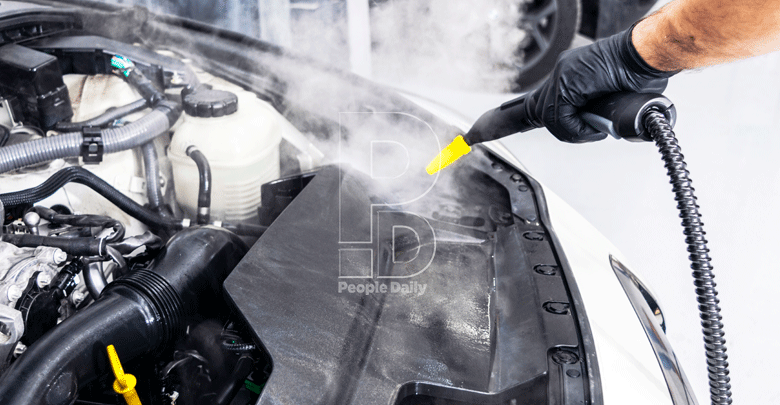Ten top car engine care tips

“Gari ni engine.” Chances are that you’ve heard this saying that the engine is the most important part of a motor vehicle. In this regard, Allan Adalla looks at how best to look after it for guaranteed smooth rides.
1. Don’t ignore the check engine light
Since our cars drive comfortably when the check engine light at the dashboard is on, it is easy to ignore it.
Never take this for granted. When this happens, you need to immediately take the car to your local mechanic.
The light, more formally known as the malfunction indicator lamp, is a signal from the car’s engine computer that something is wrong.
It indicates a more serious problem such as a misfire that can quickly overheat the catalytic converter.
These emissions devices operate at high temperatures to cut emissions, but can pose a fire hazard if faulty.
However, it’s not necessarily serious every time as it may just be as small as a faulty gas cap, but you will never know unless it’s checked.
The light is your car’s indirect scream for help before things get worse. Several other lights come on to indicate a problem.
They can warn about problems with the alternator, battery, engine temperature or other areas surrounding the engine that are monitored.
2. Replace the spark plugs
The spark plug is a vital part of the engine, as it acts as the fire starter. Its role is to ignite the air-fuel mixture at the cylinder in the engine block and requires some maintenance to give it a long life span.
Regular maintenance will keep your engine more powerful. When replacing plugs, make sure that you replace the whole set to ensure consistent levels of performance.
The symptoms of faulty spark plugs include the car struggling to start, the car idling poorly, engine knocking, worse-than-normal fuel economy and suffering performance.
At times, they just need some cleaning to get rid of the soot that accumulates over time on the electrode.
3. Check your belts
To keep the engine running, rubber belts are essential to keep everything in tune. You should always be keen to hear some sounds coming from all the parts while driving.
If you realise some squealing coming under the bonnet, then don’t hesitate to check on the belts.
This might be the time to replace them. They may either be cracked or worn. If they break when the engine is running, it may cause a serious damage to the other main parts of the engine.
4. Avoid going on reverse fuel
It is quite normal to find people whose car fuel gauge rarely reads above the quarter tank, while in others it never reads below the half tank.
Well, I don’t support or discourage any, but the one that is not advised is running on low fuels. Petrol contains some residues that settle at the bottom of the fuel tank.
So, when running on low fuels, these junks are pulled into the fuel pump, which could cause a lot of wear.
The best way to keep your car safe is by topping up your tank and save yourself the expensive repairs and replacements of the fuel pump and filter.
5. Look for leaks
The engine looks messy when the oil leaks and stains other parts. Before starting your journey, always check if there are some fluids on the ground where you park the car.
You can also check under the hood to detect or smell a leakage. If the fuel is trickling, then this may be endangering your engine life and also poses an environmental hazard incase the fuel gets exposed to fire.
Advice: You should visit the mechanic and get the engine checked. This would also serve you from the regular costs of replacing the engine fluids.
6. Regular oil change
This is the most crucial thing to do while doing a regular car service. Make sure that you pour out the older oil and replace it with the new one.
The engine oil keeps all moving parts well lubricated, so that wear and tear is minimal. Also, it traps all the dust, dirt, and sediments, keeping them out of places they shouldn’t be.
It is the simplest thing to do even without the help of a mechanic. The oil filter is equally important as it filters all the impurities from the oil and stops regulation back into the engine. This guarantees your engine a smooth and cool run.
7. Check the cooling system
Ignoring to check on the cooling system can cause an engine knock or gearbox failure.
We are coming of age from when motorists carried 20-litre jerrycans of water to add in to the cooling system.
Modern tech has come up with various ways to cool the excess heat that comes out of the engine during combustion.
Just a small amount of the coolant fluid and distilled water can serve you a long distance. A
lso, it’s a good thing to look at the engine temperature gauge to avoid a possible engine knock.
8. Clean the air filter
Just the same way humans breathe in oxygen while breathing out carbon dioxide, choked up air flow can cause the fuel not to burn completely.
In turn, this can increase greenhouse emissions in the environment, while also reducing you car engine’s mileage.
Check the air filter and get it cleaned or when it’s beyond that, change it. The engine needs to breathe properly to function well and smoothly.
9. Replace the fuel filter
The fuel filter catches any particles or debris that would be harmful to the engine and keeps it trapped in a canister, much like your oil filter does.
If the filter hasn’t been replaced in a while, then it’s a good idea to change it to keep the engine without mishaps.
10. Go easy on start and stop drives
We no longer produce carburated engine cars, which we used to start and leave for 10-15 minutes for the engine to warm up before commencing on a journey.
Modern cars are not harmed by accelerating it immediately after starting it, but engine gets worn down in constant stops and starts.
You’ll notice better gas mileage and your engine will likely last longer if your driving habits allow it to run at a fairly consistent rate.
The more instant stops and starts you throw into the mix, the more your engine has to work, which drastically reduces its lifespan.










